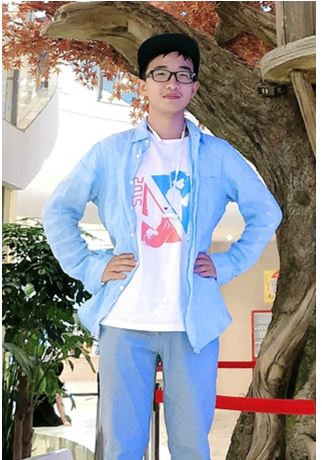Lei Tian: The Plant Cell First Author

 Lei Tian, co-first author of “The N-terminally truncated helper NLR NRG1C antagonizes immunity mediated by its full-length neighbors NRG1A and NRG1B”
Lei Tian, co-first author of “The N-terminally truncated helper NLR NRG1C antagonizes immunity mediated by its full-length neighbors NRG1A and NRG1B”
Current Position: Ph.D. candidate, Department of Botany, University of British Columbia, Vancouver, Canada
Education: B.Sc., Nankai University, Tianjin, China
Non-scientific Interests: Reading, traveling, listening to music, and playing guitar
Brief Bio: I found my interest in plant-microbe interaction after working as a research assistant in different labs during my undergraduate time. My undergraduate research internship in Dr. Xin Li’s lab at University of British Columbia prompted me to continue my graduate study there and contribute to the plant immunity field. My research focuses on the signaling event mediated through TIR-type nucleotide-binding leucine-rich repeat (NLR) plant immune receptors (TNLs). Defense responses mediated by TNLs require helper NLRs (ADR1 and NRG1) and three lipase-like proteins (EDS1, PAD4, and SAG101). Together with researchers in Dr. Jane Parker and Dr. Jonathan Jones’ groups, our team revealed that TNLs’ activation triggers the assembly of two complexes, EDS1-PAD4-ADR1 and EDS1-SAG101-NRG1, and oligomerization of helper NLRs, which are essential for downstream defense and hypersensitive cell death responses. Interestingly, we also found that an N-terminally truncated NRG1C can antagonize the immunity mediated by the full-length NRG1. My future work will focus on the characterization and functional analysis of the TNL signals in plant immunity.
姓名: 田雷
当前职位:博士生,加拿大英属哥伦比亚大学
教育经历:学士,南开大学
兴趣爱好:阅读,旅行,听音乐,弹吉他
个人简历:本科阶段在不同实验室的学习和工作经历让我发觉了自己对于植物与病原菌互作领域的兴趣。此后我有幸申请到前往英属哥伦比亚大学李昕教授课题组开展本科科研实习的机会,并确定了继续在李老师实验室攻读博士学位来深入研究植物免疫的想法。我的研究重点是寻找TNL型植物免疫受体蛋白产生的免疫信号分子以及该信号分子激活的下游免疫反应。TNL型受体介导的免疫反应通常需要辅助型受体蛋白(ADR1和NRG1)以及三个类脂酶蛋白(EDS1,PAD4和SAG101)。结合Jane Parker 和 Jonathan Jones 课题组的报道,以及今年我以共同第一作者的身份在Plant Physiology发表的实验数据证明,TNL型受体蛋白的激活可以促进两个免疫复合体(EDS1-PAD4-ADR1 和 EDS1-SAG101-NRG1)的形成。该复合体对于激活下游免疫反应包括细胞程序性死亡至关重要。此外,我们发现一个部分氨基端结构域缺失的辅助型受体蛋白NRG1C可以抑制全长的NRG1蛋白的功能来负调控免疫反应。我今后的工作将继续关注TNL型免疫受体蛋白产生的免疫信号分子及其作用机理。



